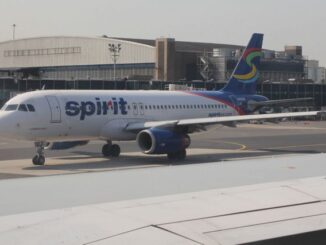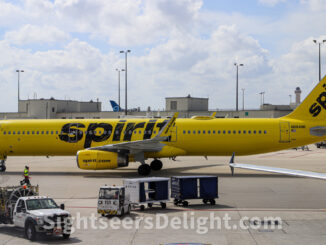The federal government is taking note of the fees that airlines charge for checked bags and other services, and additional regulations of — and federal tax revenue from — these fees could soon follow.
“Travelers often experience difficulty understanding what airlines charge since fees are not printed on boarding passes, are not displayed on travel Web sites, and are often not clearly displayed on airlines’ Web sites,” U.S. Rep. James L. Oberstar, D-Minn., said in his prepared opening statement to a House Transportation and Infrastructure Subcommittee on Aviation hearing. “We need to ensure that, at the very least, if ancillary fees continue to be charged, the consumer is made fully aware prior to their travel of what to expect.”
While a number of airlines in recent years have started charging customers to check bags or purchase snacks, Spirit Airlines in March announced it wanted to start charging passengers to store carry-on items in overhead bins. In 2009, airlines made more than $3 billion from fees, money which is not subjected a 7.5 percent federal excise tax that funds the Airport and Airway Trust Fund, which supports the Federal Aviation Administration, according to a Government Accountability Office report.
“Airlines like imposing fees rather than increasing fares because in most cases they can avoid paying taxes which support the safety and efficiency of our airport system — so consumers are being ripped off and shortchanged at the same time — enough is enough,” Kate Hanni, executive director of FlyersRights.org, said in a news release.
In June, the Department of Transportation announced a number of proposed “consumer protections,” including “full and prominently displayed disclosure of baggage fees.” An analysis by the Consumer Travel Alliance found that the “hidden fees” airlines charge can increase the cost of an airline ticket for a popular route by more than 50 percent for a traveler who has two checked bags and extra legroom.
“Our analysis showed that the hidden fees charged by airlines now rival the cost of the tickets themselves, often without any disclosure to the consumer at the time of purchase,” Charles Leocha, director of the Consumer Travel Alliance, said in a statement. “For a family traveling in these tight fiscal times, those fees can be an unexpected shock totaling hundreds of dollars in unanticipated expenses. If airlines want to charge additional fees for their services, they should be required to disclose all of those fees through every ticketing channel, so consumers can compare complete travel costs.”




